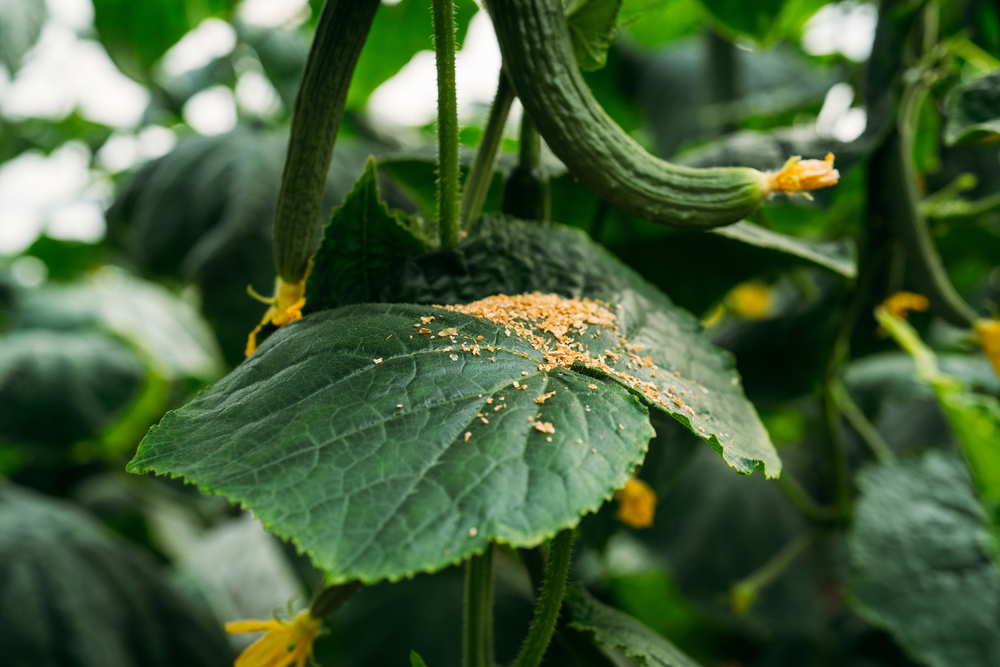With the help of EU-funded researchers, farmers across Europe are introducing smarter, more integrated pest management that protects crops and reduces chemicals without compromising profits.
In Tulinha, a small, sunny town north of Lisbon, farmer Bruno Neves proudly walks through fields and greenhouses filled with lettuce and cucumbers. During Christmas time, traditional Portuguese Christmas cabbage also appears. Ladybugs, hoverflies and other insects fly through the air, small allies in his mission to grow healthy crops.
“I create favorable conditions for insects to live on my farm,” said Neves, who works diligently to limit the use of chemical pesticides. “We cannot fight nature. We should see nature as a friend.”
nature first
His approach reflects the essence of an agricultural method known as integrated pest management (IPM). It offers a smart and environmentally friendly way to protect crops using natural processes rather than relying primarily on chemicals.
IPM combines techniques such as crop rotation and pest-resistant varieties. We also apply biological controls such as ladybugs, parasitic wasps, and beneficial bacteria to control pests.
Importantly, pesticides are not completely banned, but are used as sparingly as possible in a way that minimizes risks to human health, beneficial organisms such as bees, ladybugs and fungi that protect plants from pathogens, and the environment.
Neves is one of many farmers in Europe who have been experimenting with IPM as part of an EU-funded initiative called IPMWORKS, which ran from 2020 to April 2025.
“The aim of IPMWORKS is to grow healthy crops and manage crop diseases, weeds and pests, while reducing the use of pesticides,” said Nicolas Meunier-Jolin from the French National Institute for Agriculture, Food and Environment, who coordinates the IPMWORKS research team.
Pesticide risks
Chemical pesticides remain a major source of pollution, polluting soil, water and air, damaging biodiversity and even creating resistant pests. They also pose a risk to human health, with exposure linked to chronic diseases such as cancer, heart disease, respiratory disease, and neurological diseases.
IPM became mandatory in the EU in 2014, but implementation has been slow. Most farmers still rely heavily on pesticides. IPMWORKS set out to change that by building a network of pioneering farmers like Neves.
“I’ve never liked pesticides,” said Neves, who has been applying IPM since taking over his family’s farm in 2011. “I didn’t want to use pesticides because of health concerns, but also because I believed we should use pesticides if we could do better.”
His tenacity is paying off. “Many farmers don’t believe me, but I only sprayed three or four times last year,” he said. “Some farms are spraying as often as twice a week.”
learn from each other
Neves said the IPMWORKS network has provided valuable assistance in finding effective alternatives to pesticides.
“It was great to connect with like-minded farmers who had the same goals and challenges. Having the opportunity to share my experiences and learn from others gave me the strength to keep going, even if it wasn’t easy.”
One of the major successes of this initiative was the creation of a farmer hub. These are peer-to-peer networks led by expert coaches, such as Belgian agricultural researcher Jorian Klerbout of agricultural consultancy Inagro, who has worked with farmers in Flemish regions.
“The role of the hub coach was extremely important,” Clairbout said. “First, we needed farmers to trust us and each other so we could share ideas and practical solutions.”
These hubs became spaces for farmers to exchange experiences and find alternatives together. “Otherwise, there is so much work to do on the farm that you might not have the time,” she said.
equally profitable
Did it work? Yes, it’s not just for the environment. Farmers also stand to benefit.
“We have shown that integrated IPM is cost-effective and provides better pest control,” Munier-Jolain said. “In many cases, it reduces reliance on expensive pesticides without compromising profits.”
The research team has also created a training module and an online IPM resource toolbox to help farmers adopt sustainable practices.
However, Meunier-Jolin pointed out that many farmers remain hesitant. In addition to changing perceptions, additional financial incentives could also be helpful, he said.
“We should strive to present IPM as an economic opportunity rather than a constraint for farmers.”
Fear also plays a role, Neves said. “The biggest challenge is mindset,” he says. “Many farmers fear that their crops will be worth less. They need to believe that it is possible.”
Broader impact of integrated pest management
Although exact numbers are not available, EU data suggests that there is significant potential for IPM expansion. Scaling up could have huge benefits for both society and the environment, according to Meunier-Jolin.
“If all European farmers adopted comprehensive IPM, we could realistically aim for a 50% reduction in pesticide use without substantially reducing food security,” said Meunier-Jolin. That means cleaner water, healthier soil, and a greater boost to biodiversity.
For Neves, it’s a vision that motivates him. “As a farmer, I don’t just produce food, I also protect the environment. I want my children to look at this land in 40 years and see that their father helped protect this land instead of destroying it.”
This is not just about reducing pesticide use. It’s about reimagining agriculture so that people, profit and planet all win. The challenge now is to expand on these successes, because a greener future for agriculture depends on it.
The research for this article was funded by the EU’s Horizon program. The views of the interviewees do not necessarily reflect the views of the European Commission.
This article was originally published in Horizon, EU Research and Innovation Magazine.
Detailed information
Source link

